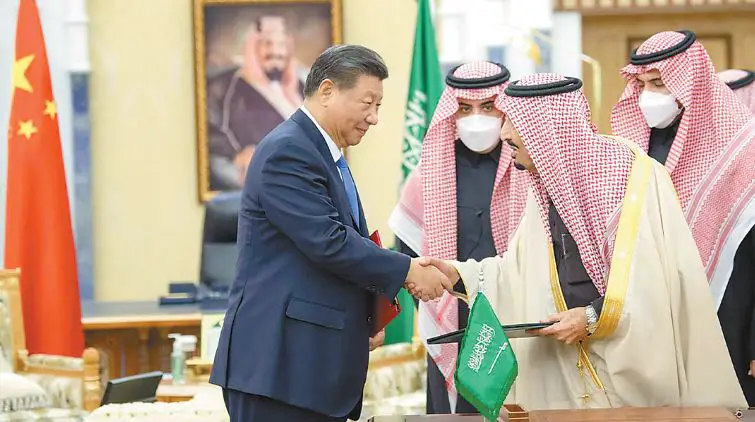Saudi Arabia and Iran have expressed interest in seeking membership for BRICS group of nations that includes Brazil, Russia, India, China and South Africa.
According to latest details, BRICS group of nations will convene this year to decide whether to admit new members and what criteria they would have to meet among those who’ve formally asked to join.
Enlarging the group would benefit Beijing, as the world’s second-biggest economy tries to build diplomatic clout to counter the dominance of developed nations in the United Nations, International Monetary Fund, World Bank and other institutions.
Meanwhile, over 13 States including Argentina, Algeria, Iran, Indonesia, Turkey, Saudi Arabia, and Egypt have conveyed their interest in joining the BRICS group.The idea of incorporating new members was raised by China last May.
BRICS countries are poised to lead the eradication of global hunger and poverty by 2030.
They account for 40% of the world’s population, 30% of the global Gross Domestic Product (GDP) and produce more than a third of the world’s cereal production.
According to the German Frankfurter Allgemeine Zeitung, Beijing and Moscow are working to further develop the BRICS club of major emerging economies to serve as a counterweight to the G7.
BRICS’ summit on June 23 last year was designed as a message to the G7 that the West is no longer in the driving seat, and that Russia, China and the Global South are preparing for a long fight against Western dominance.
Russia, China, India, along with many other countries in Asia, the Middle East, Africa and South America are navigating all available spaces to counter the suffocating western dominance.
These countries have made it clear that they will not take part in isolating Russia in the service of NATO’s expansionist agenda.
To the contrary, they have taken many steps to develop alternatives to the west-dominated global economy, and particularly to the US dollar which, for five decades, has served the role of a commodity, not a currency, per se.
The latter has been Washington’s most effective weapon, associated with many US-orchestrated crises, sanctions and, as in the case of Iraq and Venezuela, among others, mass hunger.



















